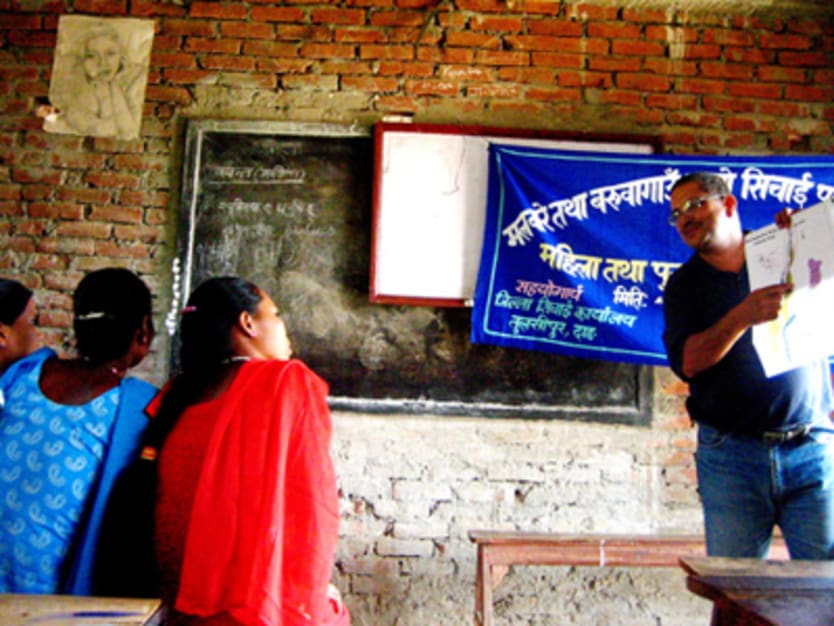
Nepal’s government announced last week a proposal to implement a new foreign aid policy that will consolidate official development assistance through a unified government channel as well as impose a minimum amount from donors.
The new policy — which will focus on an improved international development cooperation with a specific provision of ending direct funding from foreign donors to local and international aid groups — is expected to be introduced and endorsed within the month.
But that provision and the funding threshold has irked local NGOs, which believe the move threatens them and also the people’s welfare.
“There will be a huge negative effect [on NGOs] because most of [their] development funding comes from foreign aid,” Bipin Dangol, program manager at the Environment and Public Health Organization of Nepal, told Devex. “It will have a huge impact in development work and in the government systems, also because of the utilities like road, water supply systems and sanitation facilities has been established with the help of foreign aid. It will ultimately affect the lives of the people.”
He added that cutting direct funding to local and international NGOs also runs the risk of creating more unemployment, as thousands of Nepalis are employed by the NGO community as consultants, program managers and even aid workers. Dangol also said it may bring up lack of sustainability in development work.
“Many development [programs] are coursed through NGOs. If funding will be stopped, then we will not be able to work on the grassroots level, the community level,” Dangol explained.
Combating ineffectiveness
The proposed new foreign aid policy for Nepal, supposed to replace the existing one implemented in 2001, has been in the pipeline for several years, with the first draft finished in 2008.
The proposal hopes to address the existing ineffectiveness dilemma that has plagued foreign aid in Nepal for years. The government complains that in the past, international donors would just throw money at NGOs without informing the authorities of any details about the programs or lack of priority alignment. Now it wants to own the development process from the aid it receives and oversee how the money is being spent.
The Nepali government insists that foreign funding will not technically be gone, although donors will just have to notify — and to an extent course their donations through — the government.
Dangol doesn’t see that as a good solution to make foreign aid more effective.
“If the whole [foreign] funding will go through the government, with NGOs securing the money from the government, it will be a very bureaucratic and long process because it usually takes a lot of process in securing funding from the government,” he noted, pointing out however that just monitoring would be positive.
Sustainability and ending aid dependency
Another salient feature of the proposal is the focus on reducing the country’s dependency on aid in the long-run by focusing ODA on sustainable programs and measures like revenue mobilization capacity, trade and investment.
The country’s finance ministry notes it wants to make Nepal less reliant on outside help, but not completely independent from it because “total exit from aid is not possible in this globally interdependent society.”
Dangol agreed, saying that a country should not be entirely dependent on foreign aid forever, but should work on making itself sustainable and stable, both in the economic and political context.
“When the situation of a country is stable, then it needs a very minimum amount of foreign aid,” he explained. “But if the political situation is unstable then foreign aid should be increased because during that time, there is a greater need for aid in development works.”
Local ownership is now a buzzword among the aid community — do you think what Nepal wants to do will become the trend for other developing nations traditionally dependent on ODA? Please let us know your thoughts by leaving us a comment below, joining our LinkedIn discussion or sending an email to news@devex.com.
Read more development aid news online, and subscribe to The Development Newswire to receive top international development headlines from the world’s leading donors, news sources and opinion leaders — emailed to you FREE every business day.








